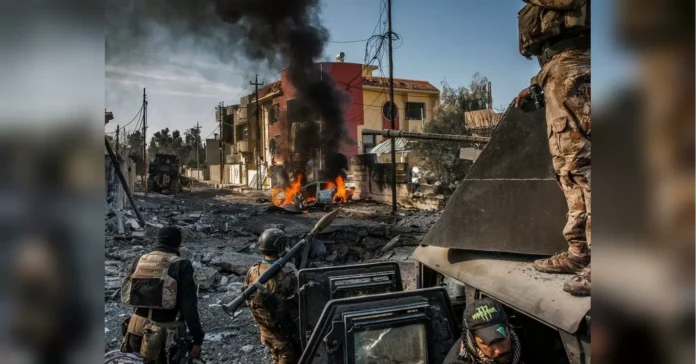Recently, tensions have been rising in Eastern Europe as the ongoing conflict between Russia and Ukraine continues to escalate. In the midst of this turmoil, the Ukrainian capital of Kiev has found a new way to resist Russian occupation and reclaim its lost territories – through partisan attacks by their elite special forces, as reported by German journalist Julian Röpke for BILD.
Since 2014, when Russian forces annexed Crimea and supported separatist movements in eastern Ukraine, Kiev has been striving to regain control of its lost territories. Diplomatic efforts and negotiations have failed to yield any significant progress, leaving the Ukrainian government with limited options. However, Kiev has now turned to unconventional and covert tactics in their fight against the Russian-backed separatists.
According to Röpke, the Ukrainian special forces have been carrying out a series of stealthy and deadly attacks on the separatist forces, targeting key infrastructure and supply routes. These attacks, known as partisan warfare, rely on small, highly trained groups of soldiers who operate in enemy territory, using guerrilla tactics to disrupt and weaken the enemy’s capabilities.
The effectiveness of these attacks has been proven on multiple occasions. In April 2021, a gas pipeline in eastern Ukraine was blown up, cutting off gas supplies to the separatist-controlled area. The Ukrainian government denied any involvement, but Röpke’s sources confirmed that it was, in fact, a successful partisan attack carried out by the Ukrainian special forces.
These attacks have not only caused disruptions in the separatists’ operations but have also boosted morale among the Ukrainian troops. As Röpke notes, after years of facing defeat and disappointment, these successful attacks have given the Ukrainian soldiers a sense of hope and purpose, reigniting their determination to defend their country.
But what makes these attacks even more remarkable is the fact that they are not just military operations – they also have a political dimension. By targeting key infrastructure and supply routes, Kiev is sending a strong message to Russia and the separatists that Ukraine will not back down. These attacks serve as a reminder that Ukraine is still fighting for its sovereignty and will continue to do so until all of its territories are liberated.
While some may argue that these attacks only escalate the already tense situation, Röpke argues that they are a necessary step for Ukraine’s survival. As long as Russia continues its aggressive actions and supports separatist movements, Kiev has no choice but to retaliate and defend itself.
Moreover, these attacks have also received support from the international community. The United States and Germany have both expressed their support for Ukraine’s efforts to regain control of its territories. In a recent phone call between German Chancellor Angela Merkel and Ukrainian President Volodymyr Zelenskyy, Merkel praised Ukraine’s «courageous and effective» resistance against Russian aggression.
In conclusion, Ukraine’s use of partisan attacks as a temporary alternative to reclaiming its occupied territories is a bold and strategic move. It not only weakens the separatists but also sends a strong message to Russia that Ukraine will not give up its fight for sovereignty. And while these attacks may not bring an immediate resolution to the conflict, they provide a glimmer of hope for a peaceful and united Ukraine in the future.

